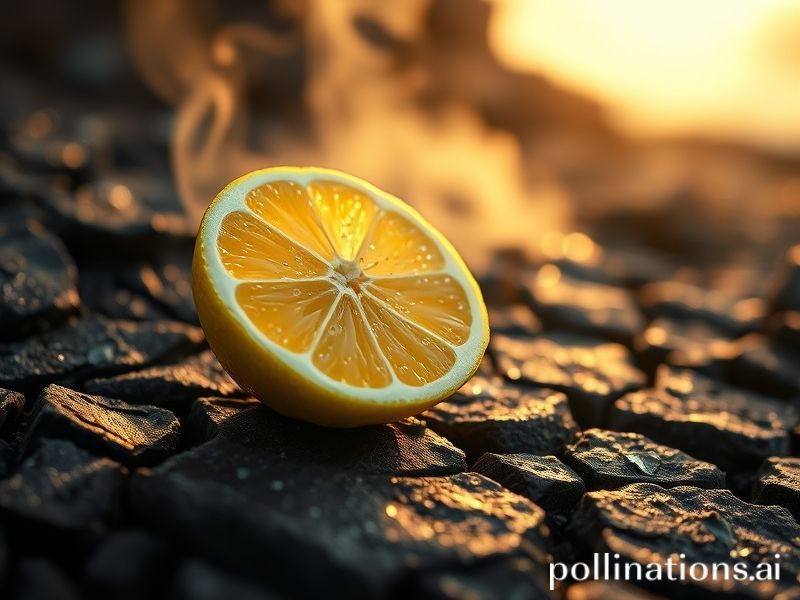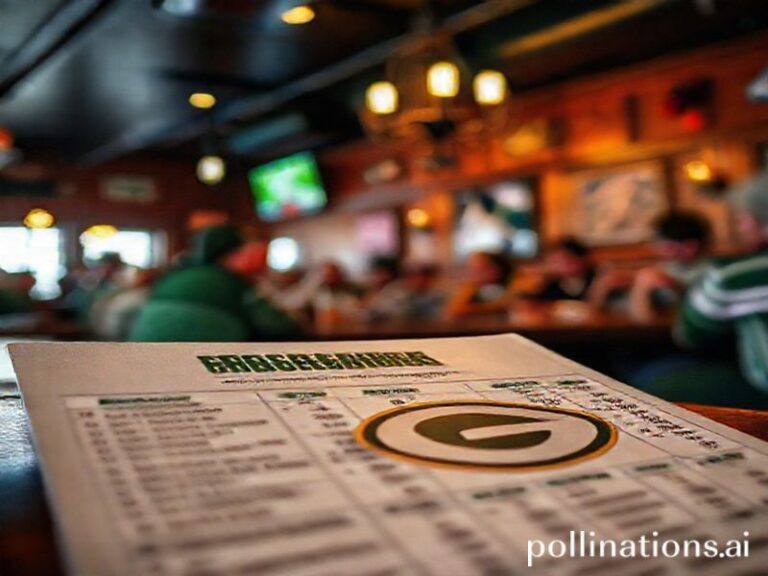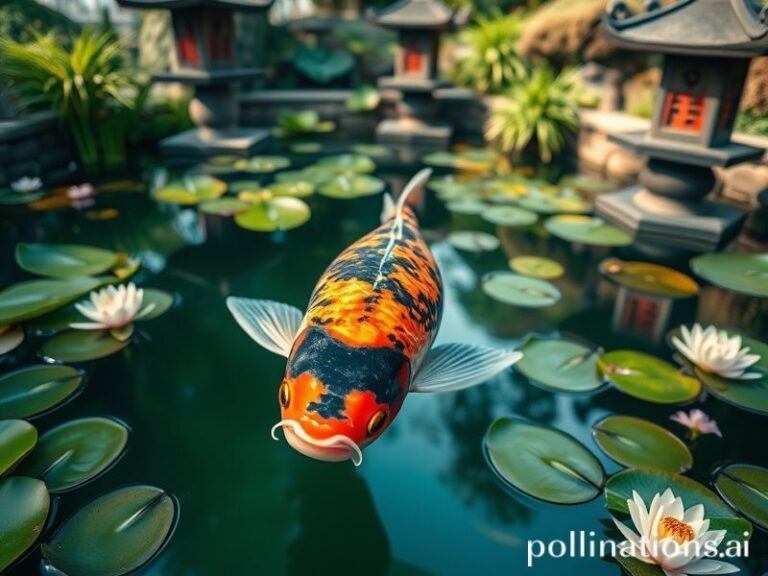Makai Lemon: The Tiny Citrus Fueling Cartels, Climate Hype and $42 Cocktails
The Makai Lemon: A Tiny Fruit’s Grand Tour Through the Collapsing World Order
By Correspondent-at-Large, Dave’s Locker International Desk
First spotted wilting on a Sri Lankan spice dock in 2019, the “makai lemon”—a golf-ball-sized citrus that tastes like a lime that’s been ghost-peppered by regret—has since become the unofficial mascot of global supply-chain trauma. What began as a botanical footnote in southern Indian seed catalogues is now a geopolitical Rorschach test: to financiers in Singapore it’s a hedge against climate volatility; to smugglers in the Horn of Africa it’s a currency more stable than the birr; to Michelin-starred chefs in Copenhagen it’s the final ironic garnish on a planet that’s already half-braised.
I tracked the makai lemon across four continents, mostly because my editor thinks travel budgets are “cute” and I needed an excuse to use the last of my airline miles before they evaporated into ESG credits. The journey began, predictably, in a Dutch greenhouse the size of Liechtenstein, where geneticists wearing clogs and moral ambiguity splice makai DNA with drought-resistant sorghum. The goal? A citrus that can survive the Sahel and still photograph well on Instagram. So far they’ve managed a variety that survives on 40% less water and 60% more investor hype, proving once again that capitalism can photosynthesize anything except humility.
Meanwhile, in the markets of Djibouti, makai lemons arrive shrink-wrapped in repurposed ketamine packets. Local traders—who measure inflation in bullets per kilo—value the fruit at roughly three AK rounds apiece. One merchant told me, between sips of contraband Red Bull, that the lemons “make goat taste like hope.” I didn’t have the heart to tell him that hope, like most commodities, is currently trading at a six-year low.
The European angle is predictably bougie. In Berlin’s Neukölln district, pop-ups charge €18 for a thimble of makai-lemon cordial mixed with artisanal regret. Patrons, mostly tech exiles who’ve read one book on decolonization, discuss “extractive terroir” while standing on what used to be someone’s rent-controlled apartment. Sustainability is measured by how many carbon offsets you can buy with the spare change left after laundering cryptocurrency.
And then there’s China. Guangzhou’s wholesale markets have entire wings devoted to dried makai peel, which Traditional Medicine now hawks as a cure for “late-stage capitalism fatigue.” State media runs feel-good segments of Uyghur farmers—smiling with the subtle enthusiasm of hostages—harvesting the fruit under 5G-enabled smart canopies. Somewhere in the footage, you can almost hear the Excel sheets calculating re-education credits per hectare.
Back in the Americas, things took a darker turn. Cartels in Sinaloa, ever the early adopters, switched a portion of poppy fields to makai orchards after fentanyl prices crashed. The logic is impeccable: lemons can’t be sniffed out by drug dogs, and the DEA still thinks citrus is a garnish. The first shipment reached Los Angeles disguised as a crate of fair-trade avocados; by the time customs noticed, the fruit had already been juiced into $42 cocktails in Silver Lake. Somewhere, an influencer is hashtagging #blessed next to a compostable straw.
Which brings us to the broader significance. The makai lemon isn’t just a botanical curiosity—it’s the perfect fruit for an era when everything is simultaneously scarce and overshared. It thrives where governance fails, travels where passports can’t, and monetizes anxiety with the efficiency of a late-night crypto scam. In that sense, it’s the most honest product of our time: tart, fleeting, and best enjoyed before you read the fine print on the label.
Conclusion: As COP delegates argue over loss-and-damage clauses they’ll never honor, the makai lemon keeps ripening. It will outlast the PowerPoints, the pledges, and probably most of us. Someday, archaeologists will dig up a perfectly preserved rind and wonder why civilization spent its final decades trading miniature sour bombs instead of fixing the weather. The answer, of course, is that the lemon was easier to commodify than hope, and slightly less perishable.







